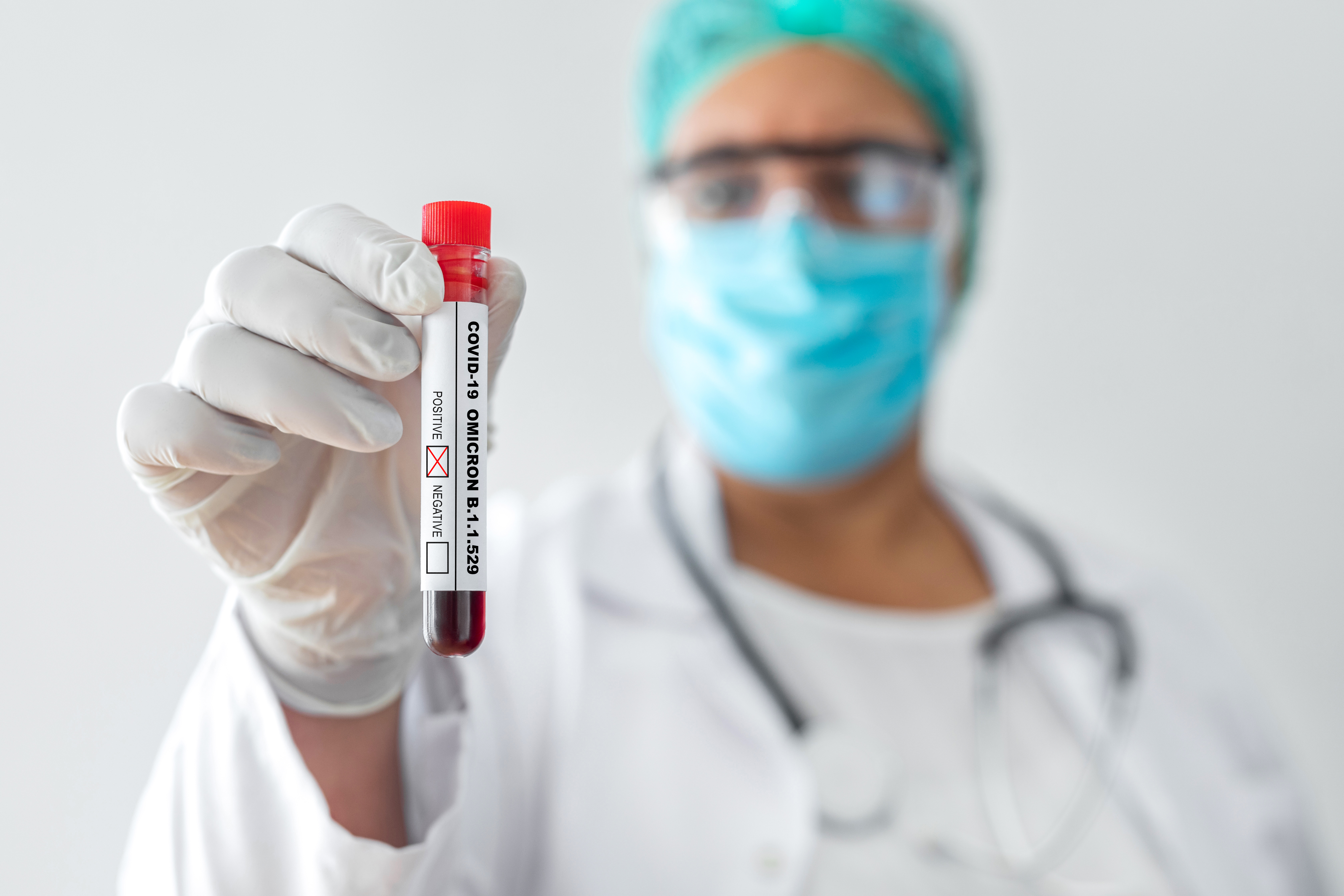New restrictions for international air travelers entering the U.S. take effect Monday, but Boston-based infectious disease experts say they are skeptical of the method intended to slow the spread of the omicron variant.
The Biden administration announced last week a ban on non-citizens entering the U.S. from several African countries, which was imposed as the omicron variant exploded in the region.
WATCH ANYTIME FOR FREE
Stream NBC10 Boston news for free, 24/7, wherever you are. |
Effective Monday, international travelers are now required to take a COVID test within 24 hours of leaving on their flight to the U.S., regardless of vaccination status. Previously, vaccinated travelers were required to provide a negative test result within three days of traveling, while unvaccinated travelers were required to provide one within 24 hours.
Additionally, the mask requirement on planes on public transportation has been extended until March 18.
Get updates on what's happening in Boston to your inbox. Sign up for our News Headlines newsletter.
Sign up for our Breaking newsletter to get the most urgent news stories in your inbox.
Dr. Anthony Fauci said Sunday that the president is considering lifting those travel restrictions now that the variant has been detected in about a third of U.S. states, including Massachusetts and Connecticut.
In Massachusetts, the variant was detected in a fully vaccinated woman in her 20s who lives in Middlesex County and had recently traveled out of state. She has experienced only mild symptoms and hasn’t needed to go to the hospital, the Massachusetts Department of Public Health said.
In Connecticut, the omicron variant was found in a man in his 60s from Hartford County who is fully vaccinated. He developed mild symptoms on Nov. 27 and had a positive at-home COVID test on Nov. 29, followed by a positive molecular test two days later.
Local infectious disease experts criticized travel restrictions on an episode of "COVID Q&A," a weekly series where top Boston doctors discuss the latest developments around the disease. The experts said travel bans are tricky to implement effectively -- they must be very strict, they're often too late and could do more harm than good for both citizens and international relationships.
Europe recognized that the omicron variant was present in the region about a week before it was detected in South Africa, Brigham and Women's Hospital's chief of infectious disease Dr. Daniel Kuritzkes noted.
"It just illustrates the essential foolishness of knee-jerk responses to the travel bans because it's always closing the barn door after the horses escaped," Kuritzkes said.
In order for travel bans to effectively control the spread of disease, they require a complex and systematic approach, according to Dr. David Hamer, an infectious disease specialist at Boston Medical Center.
"Travel bans are very hard to implement," Hamer said. "They don't really work unless they're done extremely well and, you know, in a very rigorous manner."
Measures like testing before arrival, stringent quarantine requirements on arrival and careful monitoring are vital qualifications of an effective travel ban.
"We -- the United States -- has not that done that very well," Hamer said.
More from the COVID Q&A Series
A panel of Boston-based doctors talking about everything related to the COVID-19 pandemic.
Travel bans are not only difficult to implement successfully, but they also don't exactly encourage other countries to be transparent with their health data, said Dr. Shira Doron, the hospital epidemiologist at Tufts Medical Center.
"I'm worried about these travel bans," Doron said. "I'm worried that they will disincentivize full transparency as countries and health authorities discover new things -- new variants or other concerning things in their research -- that they won't want to disclose because they'll be afraid that a travel ban will be enacted."
Doron said she is also concerned about the impact the travel bans will have on people in terms of not being able to see loved ones as well as the impact on the supply chain. She pointed to domestic travel restrictions that were largely ineffective across New England as an example of why they're often rendered ineffective.
"Even our restrictions on travel from state to state last year often didn't make any sense because, you know, we in Massachusetts were restricted from traveling to places with lower case rates, for example," Doron said. "I don't think any of these restrictions have been effective at preventing the spread of this highly contagious virus."
Now that omicron is here, health experts say we’re likely going to see it spread quickly in the coming days and weeks. They say it's also likely that it could surpass the delta variant, even becoming the dominant strain.
Gov. Charlie Baker told NBC10 Boston that he spent about an hour on the phone Friday with city and town leaders making plans to ramp up vaccinations. Boston Mayor Michelle Wu on Monday is slated to announce a new COVID-19 Advisory Committee to help tackle new variants like omicron.
With a sense of urgency, health officials and local leaders like Baker have been urging people to get vaccinated, or to receive their booster shots. But whether the vaccines protect against the new strain remains unclear.
"We just don't know," Hamer said, noting that delta remains the predominant strain in the state and the country.
The delta variant makes up more than 99% of cases and is driving a surge of hospitalizations in the north, prompting Baker to order any hospitals facing limited patient capacity to reduce scheduled procedures that are not urgent.
New England states have seen a steady rise in coronavirus cases and hospitalizations, including Maine, Vermont and to a lesser extent, New Hampshire, Hamer said. Massachusetts' COVID metrics have also been rising lately as hospitals struggle with bed and staffing shortages.
"A lot of the hospitalizations are people that have not been vaccinated," Hamer said. "And so it still remains our best tool to limit the spread of disease to decrease the risk of their disease, hospitalization and death. And we don't know whether these vaccines, as currently formulated, will protect against this new variant, but right now we're still dealing with delta primarily in the U.S."



